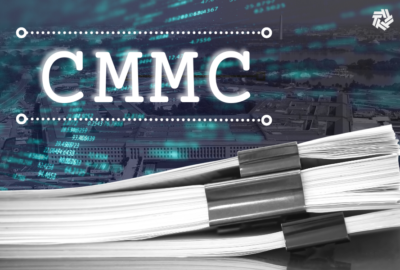Hubbard Radio Washington DC, LLC. All rights reserved. This website is not intended for users located within the European Economic Area.
How election years affect federal contracting
Election years tend to dampen contracting. If an incumbent loses re-election, policy shifts and new people can put contracts on hold.
Election years tend to dampen contracting. If an incumbent loses re-election, policy shifts and new people can put contracts on hold. For how contractors should prepare for whatever might happen this year, the Federal Drive with Tom Temin spoke with the President and CEO of the Professional Services Council, David Berteau.
Interview Transcript:
Tom Temin And I guess the good news is, at least there’s a full year appropriation as we talk.
David Berteau That’s right. Tom, good morning. And I think this is probably the first time in nine months that I’ve taped on your show, and we haven’t had a looming impending potential government shutdown, in the next few weeks. But we’ve bought ourselves a few months here now, although I suspect by the end of the summer we’ll be talking about the possibility of a shutdown again, because obviously the margins of, of voting in the House are very, very thin, getting thinner. And, and there are a number of things where we’re pretty sure we have the votes, but we’re not quite sure how we get the vote.
Tom Temin Right.
David Berteau To get to a vote. Right. Like the Ukraine supplemental, which will probably now have a key bridge, supplemental added into it if, if it makes any sense. So. But in the meantime, we are in an election year, and, and there’s a very interesting dynamic that occurs in year four of a four-year term. And I think it’s useful for contractors to think about how they interact with their existing programs and their potential new ones. In that kind of a context.
Tom Temin Yeah. Why does contracting tend to get dampened a little bit?
David Berteau Well, I think there are three things that happen there. Number one is, of course, the incumbents, the people who are in those jobs right now, in many cases are already starting to turn over. I think we’ve seen, just in the Defense Department alone in the last week, we saw the announcement of the departure of at least three senior government officials. And, you know, when we see this also at the beginning of an administration, when there are vacancies at the political level, decisions just tend to slow down a bit. Right. And so, you can keep going with what you’re doing right now pretty well. But anything that’s new, anything that requires a decision at a higher level, will just slow down because there won’t be as many people. The second reason is there’s a different focus, right? There’s a lot of focus, particularly if it’s the first four-year term of a president, on reelection and on what you’re going to finish this year and what you’re going to postpone into next year. And oftentimes there’s a lack of a recognition by the by the political appointees of how hard it is to get something done in year four, especially if it’s new. And then the third is and we’re seeing this, in spades this year. The other side gets a vote here as well because there are incentives in Congress and in other places to delay decisions until after the election in case your side wins. And we certainly saw that with respect to the bipartisan agreement in the Senate on immigration reform, that was pulled and never even got a vote, because the candidate for the Republican nomination said I’d rather keep the issues and, than solve the problem. It’s not even clear whether H.R. two, which is the House Republicans own version of immigration reform, would be allowed to come for a vote because that would, in fact, eliminate the issue. So, all of those are things that contractors need to keep in mind, particularly as they’re bidding on new work.
Tom Temin Sure. And there are things they can do, though, to maybe mitigate the effects of the, let’s call it the election effect itself by working closely with agencies you’re already doing business with.
David Berteau Absolutely. And my, my experience both serving in the government and observing it very closely from the outside for quite a number of years here, is that there are there are things that that you can help you if you want to move forward on an initiative or help the your customer move forward on initiative. I think first is focused primarily on the projects and goals for which good foundations have already been laid. Right? So, avoiding new starts do the stuff that, that is already well developed and put into place. We’ll talk about some of those, perhaps later in cybersecurity where, I would say there’s a lot of things where a foundation has been laid. Whether that foundation is good or not is a different question, obviously. And I think if you focus on those, then you’ve got a chance of getting things done, while the administration is still in place. The second is to plan with very good detail and clear timelines. And I think that’s particularly as people start to leave. You’re not sure what that timeline is. So, you have to have some off ramps or some alternatives in case things change partway through the process. Those are two first key steps that I think matter a lot.
Tom Temin We are speaking with David Berteau. He’s president and CEO of the Professional Services Council. I think yes, there’s sometimes an administration wants to leave a legacy or maybe a department does, let’s say, you know, a new electronic record system or some major type of project like that. And so maybe contractors can actually help them get that over the line and get it started maybe in the last year.
David Berteau Right. And it helps that we now have appropriations for the rest of this fiscal year. And as we mentioned earlier, it’s only six months. Today’s April 1st. Is there exactly six months left in fiscal year 24. But at least the funding is stable, and you can get it started in that regard. I think it’s also useful to look a little bit in history. Tom, you know, every decade since the 1920s has had at least one incumbent win reelection. And so, it’s pretty common that that happens. And there’s only 2 or 3 elections per decade, depending on how you define the decade, and starting with the zero or the one. But, but there’s only every one of those. And so that’s, that’s historically pretty much a guarantee that somebody is going to, an incumbent will win an election. On the other hand, only four of the last 11 presidents have actually served a full eight years, and only five of the last 13. And so that says don’t necessarily plan on anything beyond this current year. Right. And so, I think it’s important to get for contractors to support their customers by getting solidified those things that are that are in place. Another thing that’s important here is actually building support, right. So, what’s going to keep it going in the event that the political appointees change, or you have vacancy there for a long period of time? So, you know, identifying and enabling those supporters and champions in the program and across the broader agency, across the cabinet department, in other agencies, and perhaps most importantly, on the Hill. Those are things that you can work on as well in this timetable.
Tom Temin Yes. Because sometimes when something is established already, even if the next group coming in, maybe not wanting that. Sometimes you see a pause or a reset or a re baselining, but you don’t often see them killed off altogether.
David Berteau A good example for that is the DoD Cybersecurity Maturity Model Certification Program, right, where the guidance was issued in 2020. Under the previous administration, the new team came in immediately, put a halt on it, said, we’re going to take another look at it. And three years later, they have a draft, proposed rule out that is, comments have been submitted and may be adjudicated, and it may mean that four years is not even enough to issue that rule, although I know they’re committed to getting the final rule out before, before the end of the term.
Tom Temin Yes. And we’re seeing now some, new rulemaking coming, which is going to last into the next term, whoever it might be from CISA, speaking of cybersecurity. Aside from the Defense Department rules, there is the new CISA gambit.
David Berteau And there are several games out there, that have been floated around. In fact, it’s very interesting how many different cybersecurity rules are in various stages of process. I mentioned CMMC out of DoD. You’ve covered a number of times on this show, Revision three of the National Institutes of Standards and Technology, NIST standard 800-171. There are SEC rules out there. Even the White House Office of, the National Cybersecurity Director issued a request for input. PSC provided comments on behalf of our members to this, on how to harmonize all these various things. And in the midst of this comes a whole bunch of new initiatives. There were two, proposed FAR rules, which we submitted comments back in early February. One of which, by the way, would if you’re a contractor and you report a breach, would allow both, DHS’ CISA agency and the FBI to come into your systems and look around a little bit, which has caused some concern for folks. How would you handle that? Would that create a new incentive for not reporting? That’s not what we want, obviously. And now CISA has come out with a notice of proposed rulemaking. So, the actual proposed rule is not out yet, but it should come out on, Thursday of this week. It’s almost 450 pages long, and it covers, cybersecurity incident reporting. And they’ve asked for a lot of comments on this. They have given us 60 days, to comment, but it covers the broad swath of territory. By the way, this is not just for government contractors. This is for the whole economy. And, and that’s a dilemma as well, where you have, different rules applying to contractors and applying to the economy. But the broader economy rules also apply to contractors, and they don’t always match or coordinate with one another.
Copyright © 2024 Federal News Network. All rights reserved. This website is not intended for users located within the European Economic Area.
Tom Temin
Tom Temin is host of the Federal Drive and has been providing insight on federal technology and management issues for more than 30 years.
Follow @tteminWFED
Related Stories
Proposed CMMC rule contains no surprises, but raises some initial questions
Contractors make the case for flexibility in a forthcoming Defense Department cybersecurity program
Related Stories
-
Proposed CMMC rule contains no surprises, but raises some initial questions Acquisition Policy





